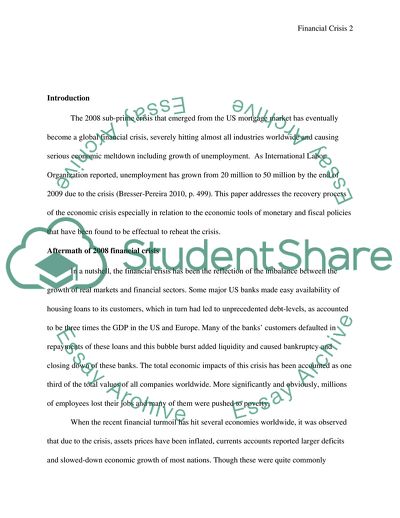Cite this document
(Aftermath of the 2008 Financial Crisis Report Example | Topics and Well Written Essays - 1500 words - 1, n.d.)
Aftermath of the 2008 Financial Crisis Report Example | Topics and Well Written Essays - 1500 words - 1. https://studentshare.org/macro-microeconomics/1749827-the-aftermath-of-the-global-financial-crisis-2007-2008
Aftermath of the 2008 Financial Crisis Report Example | Topics and Well Written Essays - 1500 words - 1. https://studentshare.org/macro-microeconomics/1749827-the-aftermath-of-the-global-financial-crisis-2007-2008
(Aftermath of the 2008 Financial Crisis Report Example | Topics and Well Written Essays - 1500 Words - 1)
Aftermath of the 2008 Financial Crisis Report Example | Topics and Well Written Essays - 1500 Words - 1. https://studentshare.org/macro-microeconomics/1749827-the-aftermath-of-the-global-financial-crisis-2007-2008.
Aftermath of the 2008 Financial Crisis Report Example | Topics and Well Written Essays - 1500 Words - 1. https://studentshare.org/macro-microeconomics/1749827-the-aftermath-of-the-global-financial-crisis-2007-2008.
“Aftermath of the 2008 Financial Crisis Report Example | Topics and Well Written Essays - 1500 Words - 1”. https://studentshare.org/macro-microeconomics/1749827-the-aftermath-of-the-global-financial-crisis-2007-2008.


